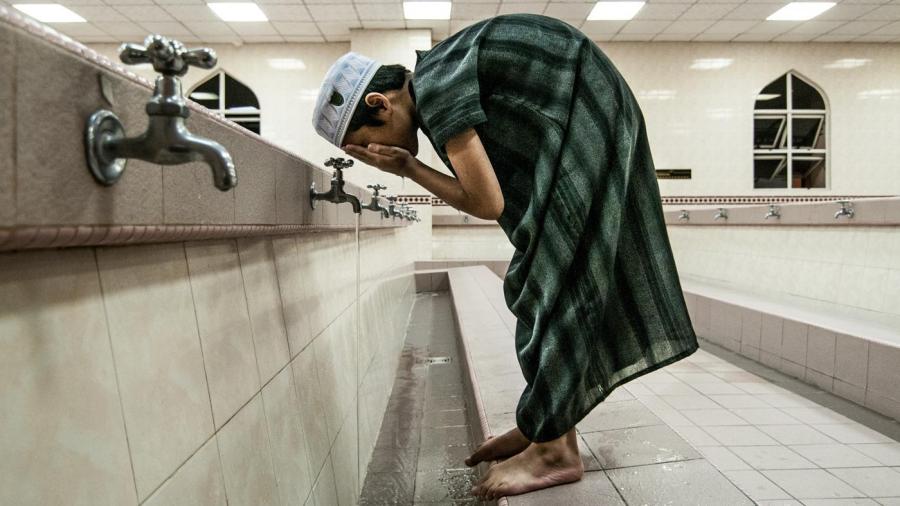Why Do Muslims Wash Before They Pray?

The purpose behind the ritualized washing, known as Wudu’, or ablutions, is to cleanse the body prior to presenting oneself for worship or prayer. At the time of Islam’s inception, the concept of hygiene was relatively foreign in most parts of the world, which made the Wudu’ unique among most cultures.
Cleanliness is of extreme importance in Islam, and the notion that physical cleanliness is symbolic of spiritual cleanliness is enforced by the Wudu’ ritual. There are two essential forms, either involving hands, feet and face, or a complete ablution, including the mouth, nostrils and head. It is well understood that regular bathing is beneficial to a person’s health, but in the time of Islam’s introduction in the Middle East, there was little concern given to such things. Not only was clean water scarce, but what water could be found was often reserved for consumption. By putting aside a measure of water specifically meant for cleaning at least the hands and feet, a community was both putting faith in God that sufficient water would be available and helping to improve the overall health of the group. It was this practice of hygiene that allowed later Muslim physicians to identify a causal link between hygiene and the transmission of certain pathogens.





